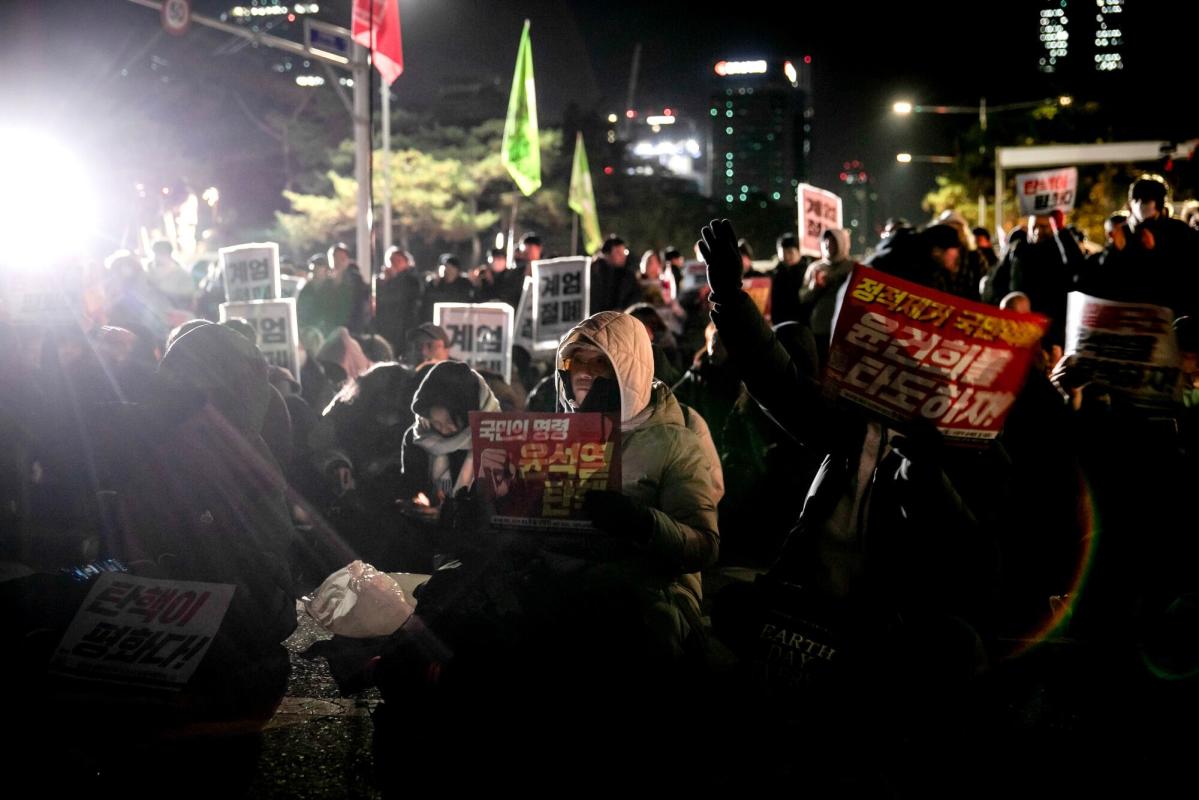(Bloomberg) — Stocks in Asia declined after South Korea’s political turmoil triggered by a brief imposition of martial law put investors on edge.
Most Read from Bloomberg
The benchmark Kospi Index fell as much as 2.3% on Wednesday after South Korea-related assets all dropped overnight. The MSCI Asia Pacific Index was down 0.5%, with shares lower in Australia, Japan and mainland China. The won advanced after losses overnight in offshore trading.
South Korean President Yoon Suk Yeol’s sudden declaration of martial law late Tuesday — which was later revoked — looks set to thrust the nation into a period of political unrest, with the opposition now pushing for his impeachment. The uncertainties surrounding a major economy and pillar of global trade increased caution among investors in Asia, at a time when Donald Trump’s imminent return and China’s economic woes have already hurt sentiment.
“The situation remains dynamic and evolving and markets could continue to experience volatility as the existing cabinet is likely to be reshuffled and a possible impeachment process could be evaluated,” said David Chao, global market strategist at Invesco in Singapore. Still, the developments are “unlikely to have any lasting effects on the economy and financial markets.”
The Bank of Korea said it will increase short-term liquidity and take “active” steps in currency markets as needed to ensure stability. The opposition Democratic Party said it will pursue charges of treason and impeachment against Yoon, as well as South Korea’s defense minister and safety minister, for declaring martial law illegally.
“There’s certainly some lingering uncertainty – but the quick response from Korean authorities means that impact on the region could remain limited,” said Charu Chanana, chief investment strategist at Saxo Markets.
In China, the central bank increased its support for the yuan by setting a significantly stronger-than-expected daily reference rate, after the managed currency weakened to a one-year low in the previous session. The country’s services activity expanded less than a month earlier, a private survey showed, a sign that consumer demand remains sluggish despite Beijing’s recent stimulus push.
Elsewhere in Asia, the Aussie dollar extended its slide to 1% after Australia’s economic growth remained sluggish in the three months through September.
Treasury 10-year yields were little changed at 4.22% after rising three basis points in the previous session. US equity futures edged higher in Asia trading after S&P 500 eked out gains to notch another record.


